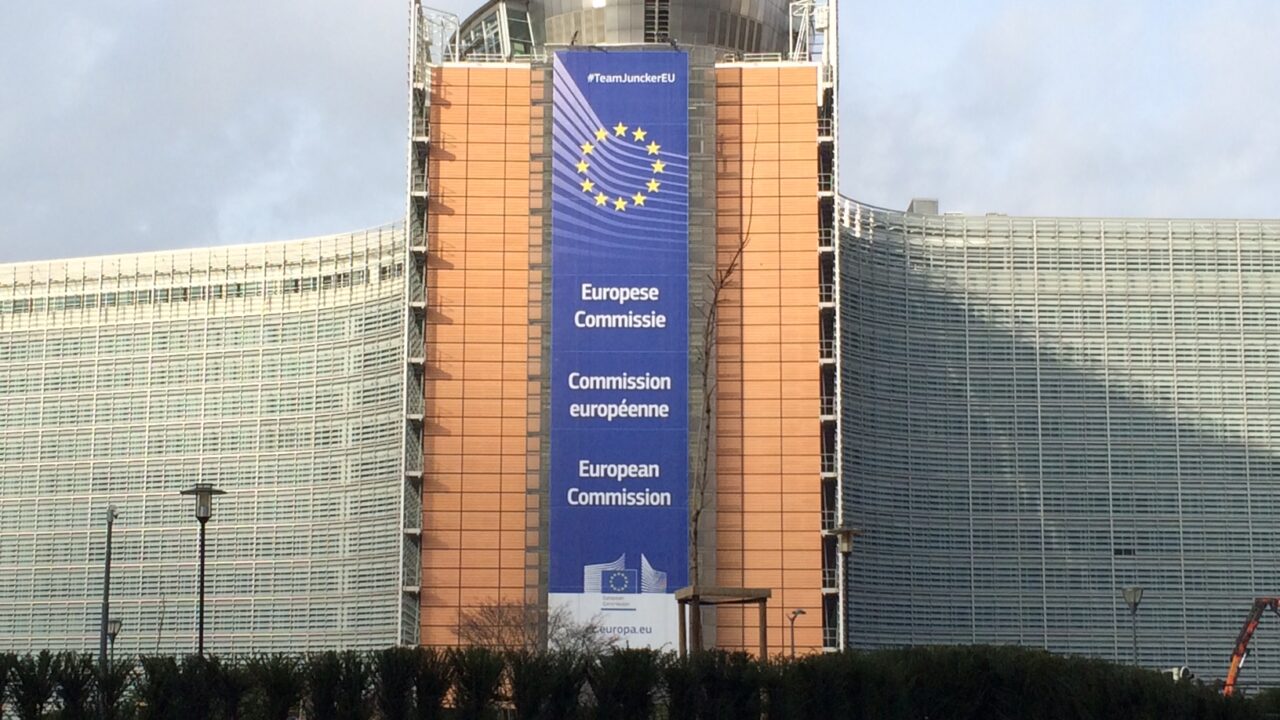Increasing the public intervention ceiling, deferring superlevy payments and a futures markets have been put forward by Ireland as ways to tackle the current problems in the pigmeat and dairy industries.
The European Commission asked Member States to submit ideas for measures to try and combat commodity market difficulties.
Ireland’s submission says that it is timely now to review the measures already taken by the Commission and to consider all options.
Market and other measures, appropriately deployed, can help to put a floor under current market prices and reduce the possibility of an already serious situation deteriorating further, according to the submission.
It also says that regulating supply in times of price downturns is not an appropriate response.
Ireland proposed 10 immediate measures for the Commission to discuss in the submission:
1. Revision of the Aid to Private Storage (APS) Scheme for SMP
It is notable that the level of take-up of the enhanced scheme has been limited, due in the most part to its lack of flexibility.
Two SMP schemes now exist: the “normal” scheme for 90-210 days, and the enhanced scheme for 365 days with a minimum of 270 days to respect terms of contract.
The requirement that product must stay in for the full 365 days or suffer a penalty if withdrawn sooner does not allow processors to take advantage of market opportunities that might emerge.
A less rigid arrangement for the removal of product from storage would allow for its reintroduction onto the market in a more orderly fashion.
In summary, the two flexibilities requested are:
- Reducing the minimum number of storage days under the “enhanced scheme”.
- Removing the 10% penalty for product withdrawn from storage before the maximum of 365 days.
2. Improved allocations under the APS Cheese Scheme
Ireland called for un-used quotas on the next closure deadline of September 30 to be made available to interested Member States if un-used.
3. Market Analysis/Exceptional Measures
The downturn in global milk prices evident since the start of 2014, is proving more prolonged than originally anticipated, and this has been most acutely felt by producers over the past several months.
This is having a severe impact on farm incomes.
This is bearing in mind the provisions of Article 7.2 of the CMO Regulation in relation to the reference thresholds for intervention.
In this context scope to utilise exceptional measures should also be kept under consideration.
4. Intervention Quantitative Ceiling
Ireland requests the Commission to bring forward proposals to:
- Allow the Council to increase this quantitative limit for the 2016 Scheme to 200,000t, to provide further stability and encourage a more orderly usage of the intervention mechanism.
- Extend the intervention buying-in period to beyond the 30 September deadline to ensure its availability in Q4 2016 and if necessary Q1 2017.
Such provisions may be adopted by the Council through an amendment of Regulation 1370/2013, or through the provisions of Article 219 of Council Regulation, which provides for exceptional measures which “extend or modify the scope, duration or other aspects of other measures under this Regulation.”
5. Superlevy
Given that the dairy price crisis is more prolonged than had been anticipated, Ireland is seeking the deferral of the 2016 and 2017 instalment payments to the Member State by a further year.
Such a measure could be provided for under Article 219 of Council Regulation 1308/2013, given the repeal of Council Regulation1234/2007, and would be cost free from an EU budget perspective, given that superlevy has already been paid in full by Member States.
6. Pigmeat PSA Scheme
The ending of the PSA scheme for pigmeat does not appear justified by the current state of the EU and global pigmeat market.
This is a sector which does not enjoy direct EU supports and therefore the market support tools available in times of extreme price volatility must be deployed when necessary.
7. Russia pigmeat ban
Ireland would request the Commission to continue and intensify its political, technical and diplomatic efforts to unlock the Russian market for EU pigmeat.
The previous engagement has unfortunately yielded little progress to date, and the opportunity to re-engage and secure access for products outside the scope of the Presidential decree, such as pig fats and offals should be immediately pursued.
8. Increase in de-minimis State Aid levels
The current de minimis levels for state aid assistance in the agriculture sector for primary producers should be re-examined, in light of the negative impact of price volatility on small scale producers.
A modest increase in the de minimis aid level to €20,000 over 3 years would allow Member States additional flexibility in combating the worst impacts of price volatility without undermining the single market.
9. Block Exemption Regulations – State Aids
Extreme price volatility is among the major and continuing challenges facing EU farmers.
Despite this, it is notable that there is no provision for volatility management measures under Commission Regulation (EU) No. 702/2014 declaring certain categories of aid in the agricultural and forestry sectors and in rural areas compatible with the internal market.
Consideration should be given to making specific provision for measures to deal with volatility in these regulations.
10. Longer term measures
Ireland believes it is necessary to give consideration at EU level to responses to volatility issues in the future such as more price transparency through the EU’s Milk Market Observatory, further consideration of the role that might be played by futures markets and greater provision of fixed-price contracts for producers.
Ireland also suggests the use of financial instruments specifically designed to take account of the cash flow impact of downward price cycles in commodity markets.
